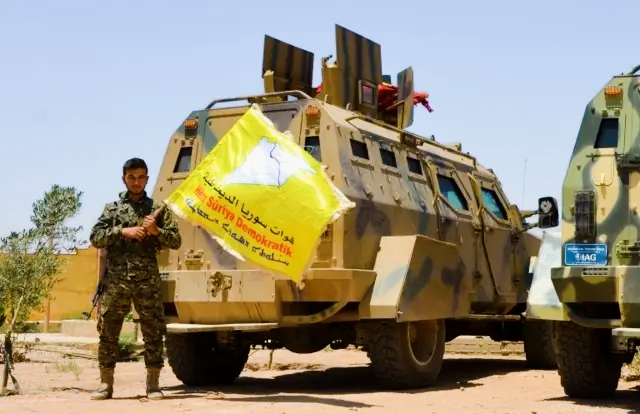Sihanouk Dibo, representative of the Self-Administration of North and East Syria abroad, said that the reasons that led to the establishment of the administration and the Syrian Democratic Forces (SDF) are still valid, emphasizing that the integration of the SDF into the Syrian state institutions should be gradual.
He added, from Qamishli yesterday evening, that the Self-Administration does not oppose understanding with the Syrian government, confirming no disagreements with the US administration, and that the administration is ready to positively engage in the Syrian People's Council elections if consensus is reached.
On the other hand, Qutaiba Idlibi, Director of American Affairs at the Syrian Foreign Ministry, stated to the Syrian News Channel on Friday that the agreement signed on March 10th between Damascus and the SDF has not seen any progress in its implementation, accusing the SDF of seizing resources in Deir ez-Zor province.
He also pointed out that the United States is in full agreement with Damascus on several issues, and that an upcoming meeting between the Syrian government and the SDF will be held in Paris as part of negotiations aimed at achieving full integration.
He explained that France and the United States believe in the importance of completing steps that ensure the preservation of Syria's unity, confirming that Paris is ready to pressure the SDF to achieve a final agreement desired by the Syrians.
Earlier in July, Thomas Brak, the US Ambassador to Turkey and Special Envoy for Syria, stated that the only way for the SDF is to reach an understanding with the Syrian government, emphasizing that his country supports a unified vision for Syria, with a constitution ensuring representation for all in parliament.
He affirmed that Washington does not support the establishment of an Alawite or Druze state or a separate entity for the SDF, but seeks to give Syrians hope through gradual reconstruction and lifting sanctions.
The agreement signed on March 10th between SDF commander Mazloum Abdi and Syrian President Ahmed al-Sharaa stipulated in its core provisions ensuring the rights of all Syrians to participate politically and state institutions based on competence, and recognizing the Kurdish community as an authentic component in Syria enjoying all constitutional rights.
The agreement also included a comprehensive ceasefire, the integration of all civilian and military institutions in northeastern Syria into the Syrian state administration, including border crossings, airports, oil and gas fields.
It also guaranteed the return and protection of displaced persons, combating remnants of the previous regime, rejecting all attempts at division and hate speech, with the formation of executive committees to implement the agreement's provisions by the end of this year.

